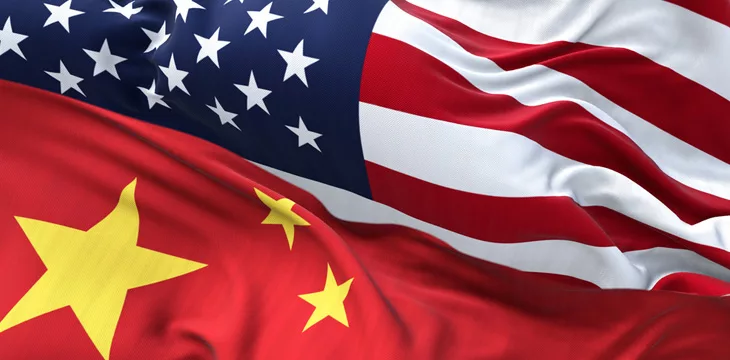|
Getting your Trinity Audio player ready...
|
The Biden administration has placed new restrictions on exporting artificial intelligence chips to China as the AI arms race between the world’s two largest economies heats up.
In a statement released this week, the U.S. Department of Commerce announced that it was tightening restrictions it placed on chip exports to China in October 2022. Through the Bureau of Industry and Security, the department stated that the new rules will shut off pathways to evade the government’s restrictions.
#ICYMI: Commerce Strengthens Restrictions on Advanced Computing Semiconductors, Semiconductor Manufacturing Equipment, and Supercomputing Items to Countries of Concern
More from @BISgov: https://t.co/HJRSwvKAKy pic.twitter.com/NG45Z4hRYo
— U.S. Commerce Dept. (@CommerceGov) October 18, 2023
In its ban last year, the Biden administration restricted the sale of the top-of-the-range chips to Chinese firms. While the ban targeted military use, these high-performance chips are also used by AI companies. AMD (NASDAQ: AMD) and the $1-trillion-club member
Nvidia (NASDAQ: NVDA) were among the most affected firms.
However, these firms have circumvented the ban by manufacturing new chips that fall just below the threshold performance indicated by the restrictions. Nvidia came up with A800 and H800 chips last November, primarily for the Chinese market. Under the new restrictions, the export of these chips to China is now banned.
“As we implement these restrictions, we will keep working to protect our national security by restricting access to critical technologies, vigilantly enforcing our rules, while minimizing any unintended impact on trade flows,” commented U.S. Secretary of Commerce Gina Raimondo.
The new restrictions are the latest efforts by the U.S. to curtail China’s advancements in AI. With the East Asian nation hot on its heels in AI development, the U.S. has cut it off from the supply of chips, expertise, and funds to secure its place atop the AI industry.
In August, U.S. President Joe Biden signed an executive order banning U.S. investors from investing in Chinese companies in AI, quantum computing, and semiconductors. Biden has also enlisted his allies to issue similar bans, with Japan and the Netherlands—the two most prominent players in semiconductors alongside the U.S.—issuing export bans against China.
China has criticized the move, describing it as a threat to global trade.
“The US needs to stop politicizing and weaponizing trade and tech issues and stop destabilizing global industrial and supply chains. We will closely follow the developments and firmly safeguard our rights and interests,” the Chinese Foreign Ministry said.
Industry stakeholders in the U.S. have also raised concerns. In its statement, the Washington-based Semiconductor Industry Association cautioned the government against killing an industry for political reasons.
“We recognize the need to protect national security and believe maintaining a healthy U.S. semiconductor industry is an essential component to achieving that goal. Overly broad, unilateral controls risk harming the U.S. semiconductor ecosystem without advancing national security as they encourage overseas customers to look elsewhere,” it said.
In order for artificial intelligence (AI) to work right within the law and thrive in the face of growing challenges, it needs to integrate an enterprise blockchain system that ensures data input quality and ownership—allowing it to keep data safe while also guaranteeing the immutability of data. Check out CoinGeek’s coverage on this emerging tech to learn more why Enterprise blockchain will be the backbone of AI.
Watch: AI truly is not generative, it’s synthetic

 03-05-2026
03-05-2026 




